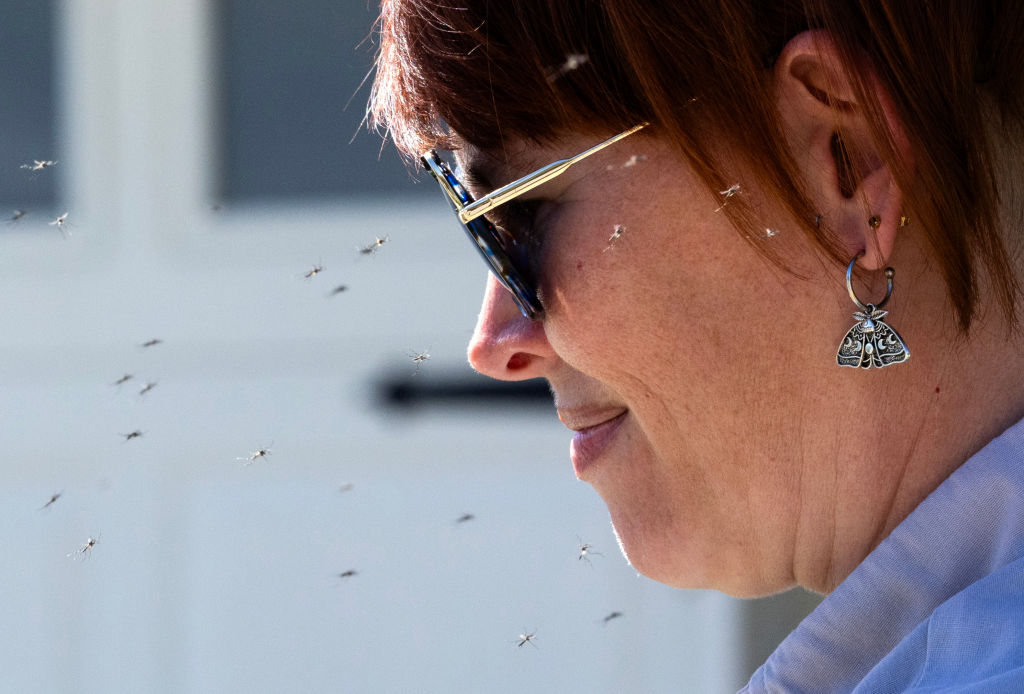
Here are facts and protocols on Chikungunya.
It’s almost déjà vu – a never-heard-of virus spreading through China, requiring vaccination and scaring the public. Fortunately, this one is generally non-fatal. It is not transmitted from person to person, and vaccines are available for at-risk travelers. Americans needn’t rush to buy masks or hide indoors; people visiting China, Hong Kong, or other affected countries may wish to consider a preventive vaccination.
Another Strange Virus
The COVID-19 pandemic had a profound impact on the world, raising awareness of the dangers posed by novel infectious diseases. Zika, monkeypox, and Ebola have become household names, to which now may be added the funky-sounding virus chikungunya (pronounced chicken-GUN-yah.) No, this is not onomatopoeia for a chicken-borne weapon that shoots bullets: It is spread solely by the bite of infected mosquitoes and did not originate in a gain-of-function lab or a Chinese animal market.
Still, chikungunya can inflict illness, including fever and joint pain, and death can occur in rare instances. According to the European Centre for Disease Prevention and Control, about 90 deaths have been linked to the virus out of 240,000 global cases. The Centers for Disease Control (CDC) reports no locally acquired chikungunya cases in the United States since 2019 but has chronicled 199 reported cases last year and 46 so far this year. Of the various countries where the risk of illness from infected mosquitoes is cautioned, China currently has the most significant outbreak. Some 7,000 cases have been reported, mainly in the city of Foshan (near Hong Kong), although the Chinese say the numbers are dropping and that the outbreak is under control.
Authorities in China are spraying people with mosquito repellent, dispatching drones to identify breeding sites, releasing mosquito-eating fish and “elephant mosquitoes” (whose larvae eat the smaller version of the chikungunya species), and fining citizens heavily (up to $1,400, or having their electricity shut off!) for leaving standing water sources unaddressed. There is currently no cure for the disease, but two vaccines are available. In the post-COVID-19 era, everyone wants to know: Are the vaccines safe and effective, and should US travelers get vaccinated?
Vaccine Precautions?
As usual, it’s complicated. Newborns and the elderly are at a higher risk of severe illness from this chicken-sounding virus, as are individuals who travel to areas with active outbreaks and those visiting infected regions for extended periods. There are two approved vaccines – one uses an attenuated virus (IXCHIQ) and the other a “virus-like particle” that mimics the virus to stimulate immunity (VIMKUNYA). A Catch-22 arises for elderly travelers to affected areas: They are at higher risk of serious illness but also of severe reactions to the IXCHIQ vaccine. The CDC reported:
“In 2024, CDC and FDA investigated five hospitalizations for cardiac (heart) or neurologic (nervous system) events following vaccination with IXCHIQ among older people. Findings from the investigations were discussed with national immunization experts at the Advisory Committee on Immunization Practices (ACIP) meeting on April 16, 2025. We are also aware of additional serious adverse events in older people in other countries. CDC and FDA advise people 60 years and older should not get the live-attenuated vaccine [IXCHIQ] until these additional reports are further investigated.”
Viral Concerns Are Overblown
The VIMKUNYA vaccine is thus favored for elderly at-risk patients. Pregnant women also must weigh the pros and cons of a vaccine versus a potential infection. Concerned travelers are advised to consult their physicians (who are presumably not being paid a stipend for recommending these shots).
Wide media coverage of this virus likely stems from its novelty and the recent trauma of the other Chinese virus, but this voyeuristic fascination does not translate to reasons for alarm or even (for most Americans) postponed travel. The CDC recommends preventing infection by warding off mosquitoes, just as one would at home – using repellents, wearing long-sleeved shirts and pants, and staying in places with air conditioning and screened windows (generally a good idea anyway).
US visitors to China might also bring along some mosquito-munching fish, but if they are traveling to a highly infected area, they could consider the odd-sounding (aren’t they all?) vaccines available to prevent catching this virus in faraway lands.
















